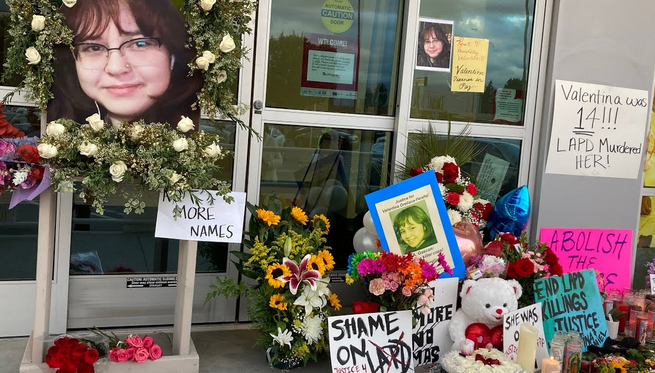This lucky young girl attended a Feb. 15 advance screening.
How about a leading Black super hero who is king of a never colonized nation in Africa that is stronger militarily and more technologically advanced than western “civilization?”
Yes, in this bloated time of Tump’s through-the-looking-glass-presidency, the revolution is coming to your local movie theater this weekend! For the genre of Afrofuturism in cinema, the release of Marvel Studio’s Black Panther today marks the end of a 44 year drought beginning after Space Is The Place- staring the Afrofuturist granddaddy Sun Ra- in November of 1974. A few weeks after Ra passed in May of 1993, actor Wesley Snipes had just wrapped up shooting Demolition Man with Sylvester Stallone and was pitching studios to make a Black Panther film staring himself as T’Challa, the King of Wakanda.
By 1994, a script had been written and Black Panther creator Stan Lee was on board. But as with many film projects, particularity Black film projects, it fell by the wayside. Lee later recalled that he felt the script was lacking. Snipes and Hollywood parlayed Black Panther into Blade (1998), another Black half human, half vampire Marvel hero that has since achieved cult film status.
But Blade and even Sun Ra had limits when it came to projecting power in cinema For Ra, power was not on even Earth but in space travel somewhere in the abstract future.”Black People, think about space. Fuck the ghetto! Think about space!” Ra would often say in the 70’s.
Fast forward to post-Obama 2018 when Black Panther is poised today to upend all cinematic and super hero norms across the global stage. Set in the fictional African nation Wakanda, T’Challa is acclimating to the throne his father held until his assassination in Captain America: Civil War (2016), with all its perks and challenges. He also inherits the Black Panther suit made of vibrainum that has protected the Wakadan nation for thousands of years.
Unlike in the comics, Wakanda in this Black Panther is far from abstract and is fully conceptualized. The same could be said of the female roles, led by “Queen Mother ” Angela Bassset, Lupita Nyong’o, Letitia Wright and Danai Gurira, who dominate the narrative with the strength and depth of their characters, another rarity in the female-as-ornament genera of male super hero films. T’Challa, played by Chadwick Boseman, maybe overpowered by the women of Wakanda; but he is never overwhelmed or threatened by them.
The costume design and the percussive score are truly revolutionary. Add that to a large scale, super hero budget set in futurist Arfica where no White man has ever ruled and you have all the ingredients of a budding Afrofuturist renaissance that is sure to impact the world way beyond just the sliver screen.
Yet the biggest and most important impact Black Panther will have is on Black children around the world, who for the last 11 years of the Marvel Cinematic Universe were forced to equate heroism with Whiteness.
Like Harriet Tubman, Rosa Parks and Nelson Mandela, Black Panther, as Bob Marley once wrote, has “set the captives free.”
While your in the futuristic empowerment mood watch Space Is The Place, 1974.












